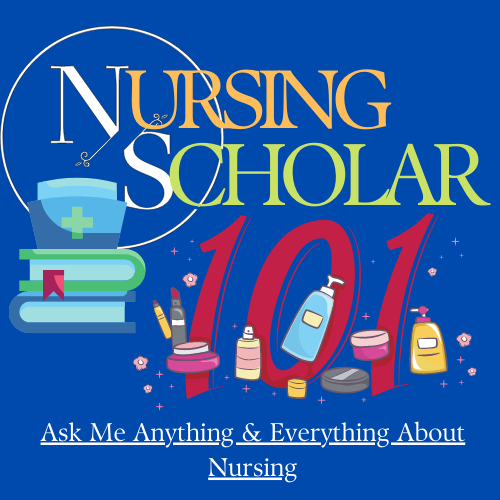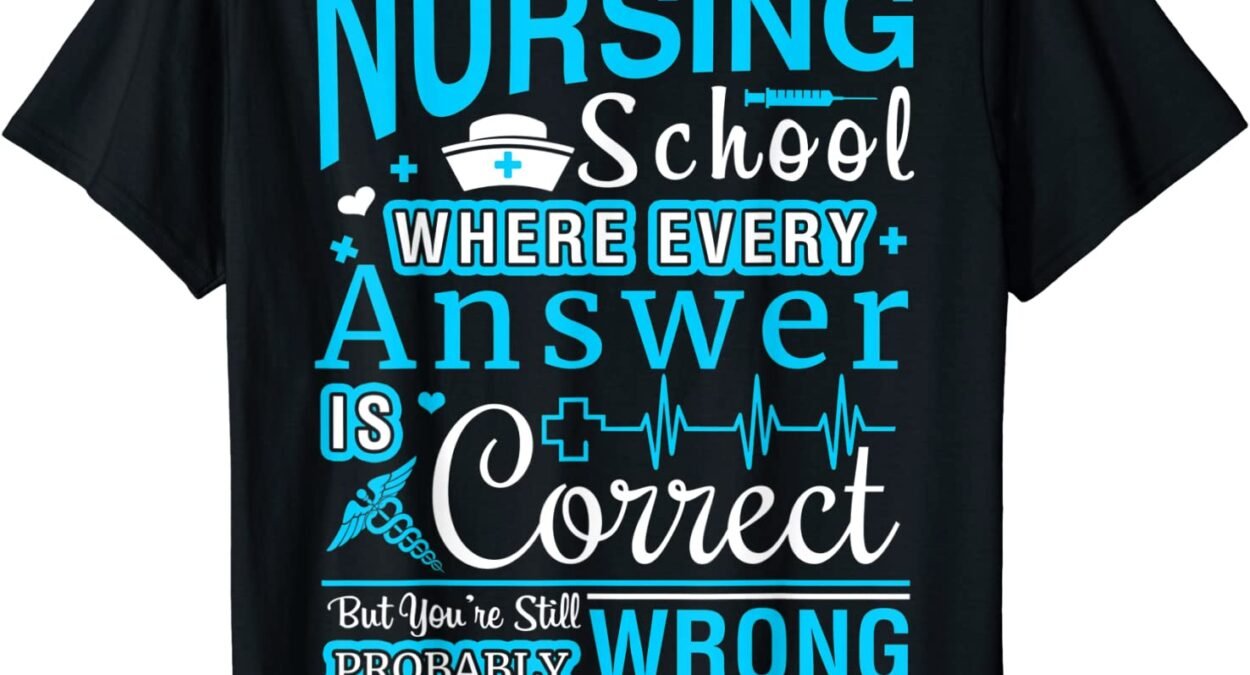Nursing Career 101: The A to Z FAQ Guide
In today’s fast-paced world, healthcare professionals play a crucial role in providing quality care to individuals in need. Among these professionals, nurses are an integral part of the healthcare system. If you’re considering a career in nursing, you may have several questions about the field. This article aims to provide you with a comprehensive FAQ guide to help you understand various aspects of a nursing career.

A TO Z FAQ ABOUT NURSING CAREER
What is Nursing?
Nursing is a noble profession focused on providing care, support, and treatment to individuals, families, and communities to promote health and well-being. Nurses work closely with doctors and other healthcare professionals to deliver patient-centered care in a variety of settings, such as hospitals, clinics, schools, and even patients’ homes.
Why Choose Nursing as a Career?
Nursing offers numerous advantages that make it an attractive career choice. Some of the key reasons why individuals choose nursing include:
- 1. Job Stability: The demand for nurses is consistently high, providing excellent job security and stability.
- 2. Rewarding Work: Nursing allows you to make a positive impact on people’s lives by providing compassionate care and support.
- 3. Versatile Opportunities: Nursing offers a wide range of specializations and career paths to choose from, allowing you to pursue your interests and passions.
- 4. Competitive Salaries: Nurses are well-compensated for their skills and expertise, with competitive salaries and benefits.
- 5. Global Opportunities: Nursing is a globally recognized profession, offering opportunities to work in different countries and cultures.
Education and Training Required
To become a registered nurse (RN), you need to complete a nursing education program. The educational paths to becoming a nurse include:
1. Diploma in Nursing: This program typically takes 2-3 years to complete and is offered by hospitals.
2. Associate Degree in Nursing (ADN): ADN programs are usually 2-3 years long and are offered by community colleges.
3. Bachelor of Science in Nursing (BSN): BSN programs are 4-year undergraduate programs offered by colleges and universities.
Different Types of Nursing Careers
Nursing offers a wide range of career opportunities. Some popular nursing careers include:
1. Registered Nurse (RN): RNs provide direct patient care, coordinate treatment plans, and educate patients and their families.
2. Licensed Practical Nurse (LPN): LPNs provide basic patient care, administer medication, and monitor patients’ health.
3. Nurse Practitioner (NP): NPs have advanced training and can diagnose illnesses, prescribe medication, and provide primary care.
4. Clinical Nurse Specialist (CNS): CNSs specialize in a particular area of healthcare and provide expert advice to other nurses.
5. Certified Nurse Midwife (CNM): CNMs provide care to women during pregnancy, childbirth, and postpartum.
Nursing Specializations
Within the field of nursing, there are numerous specializations you can choose to focus on. Some common nursing specializations include:
Pediatric Nursing
Pediatric nurses specialize in providing care to infants, children, and adolescents. They work closely with pediatricians to address the unique healthcare needs of young patients.
Critical Care Nursing
Critical care nurses work in intensive care units (ICUs) and provide specialized care to patients with life-threatening conditions. They monitor patients closely, administer medications, and assist in emergency procedures.
Psychiatric Nursing
Psychiatric nurses care for patients with mental health disorders. They work in psychiatric hospitals, clinics, and community settings, providing counseling, medication management, and support to individuals with mental health challenges.
Geriatric Nursing
Geriatric nurses focus on providing care to elderly patients. They assist with managing chronic conditions, ensuring medication adherence, and promoting healthy aging.
Oncology Nursing
Oncology nurses specialize in caring for patients with cancer. They provide emotional support, administer chemotherapy, monitor patients’ responses to treatment, and educate them about managing side effects.
Obstetric and Gynecological Nursing
Obstetric and gynecological (OB/GYN) nurses care for women during pregnancy, childbirth, and postpartum. They provide prenatal care, assist in labor and delivery, and offer support and education to new mothers.
Job Opportunities
Nursing offers a wide range of job opportunities across various healthcare settings. Some common employment options for nurses include:
- – Hospitals
- – Clinics and outpatient facilities
- – Nursing homes and long-term care facilities
- – Home healthcare agencies
- – Schools and universities
- – Government and public health agencies
- – Pharmaceutical companies
- – Research institutions
Salary and Benefits
The salary of a nurse can vary depending on factors such as location, experience, specialization, and educational level. Generally, nursing salaries are competitive, and nurses often receive additional benefits such as health insurance, retirement plans, paid time off, and opportunities for career advancement.
Skills and Qualities Needed
To excel in nursing, several skills and qualities are essential. These include:
- – Compassion: Nurses must genuinely care for their patients’ well-being and demonstrate empathy and understanding.
- – Critical Thinking: Nurses need to make sound decisions quickly, analyze complex situations, and prioritize patient care.
- – Communication: Strong communication skills are vital for effectively interacting with patients, families, and healthcare teams.
- – Attention to Detail: Nurses must pay close attention to patients’ conditions, medication dosages, and treatment plans.
- – Adaptability: Nursing often involves fast-paced and unpredictable situations, requiring nurses to adapt and respond accordingly.
- – Stamina: Nurses work long shifts and may need physical stamina to handle the demands of the profession.
Challenges and Rewards of Nursing
While nursing can be incredibly rewarding, it also comes with its challenges. Some common challenges faced by nurses include:
- – Emotional Stress: Nurses witness pain, suffering, and loss, which can take an emotional toll.
- – Workload and Time Pressure: Nursing can be demanding, with heavy workloads and the need to prioritize multiple tasks.
- – Shift Work: Many nurses work shifts that include nights, weekends, and holidays, which can disrupt personal schedules.
- – Physical Demands: Nurses may need to lift and move patients, leading to physical strain and the risk of injury.
Despite the challenges, nursing offers immense rewards. The ability to make a positive impact on patients’ lives, the opportunity for continuous learning, and the fulfillment of being part of a compassionate profession are some of the rewarding aspects of nursing.
Nursing Ethics and Responsibilities
Nurses are bound by a code of ethics that guides their professional practice. Some key ethical principles in nursing include:
- – Patient Autonomy: Respecting patients’ right to make decisions about their healthcare.
- – Beneficence and Nonmaleficence: Acting in the best interest of patients and avoiding harm.
- – Confidentiality: Safeguarding patients’ privacy and maintaining the confidentiality of their medical information.
- – Advocacy: Advocating for patients’ rights, needs, and preferences.
- – Integrity: Practicing with honesty, integrity, and professional accountability.
Nurses have several responsibilities, including:
- – Assessing patients’ health conditions and collecting relevant data.
- – Developing and implementing individualized care plans.
- – Administering medications and treatments.
- – Monitoring patients’ vital signs and response to treatment.
- – Educating patients and their families about their health conditions and self-care.
- – Collaborating with other healthcare professionals to ensure comprehensive care.
Continuing Education and Advancement
Nursing is a constantly evolving field, and it’s essential for nurses to engage in lifelong learning. Continuing education programs, certifications, and advanced degrees allow nurses to expand their knowledge, enhance their skills, and advance their careers. Some nurses pursue advanced practice roles, such as becoming nurse practitioners or nurse educators, while others may specialize in specific areas or pursue leadership positions.
Nursing Associations and Professional Organizations
Nursing associations and professional organizations provide support, resources, and networking opportunities for nurses. Some notable organizations include:
- – American Nurses Association (ANA)
- – International Council of Nurses (ICN)
- – National Association of Pediatric Nurse Practitioners (NAPNAP)
- – Oncology Nursing Society (ONS)
- – Emergency Nurses Association (ENA)
- – American Association of Critical-Care Nurses (AACN)
Joining these associations can help nurses stay updated with industry trends, access educational resources, and connect with fellow professionals.
Impact of Technology on Nursing
Technology has revolutionized the field of nursing, enhancing patient care and improving efficiency. Some ways technology has impacted nursing include:
– Electronic Health Records (EHR):
EHR systems enable nurses to access and update patient information seamlessly, improving communication and care coordination.
– Telehealth:
Telehealth allows nurses to provide remote patient care, monitor patients’ conditions, and offer health education virtually.
– Medical Devices and Equipment:
Advanced medical devices and equipment help nurses deliver accurate diagnostics, administer treatments, and monitor patients’ vital signs.
– Mobile Applications:
Mobile apps provide nurses with quick access to drug information, medical calculators, and educational resources.
– Health Monitoring Devices:
Wearable health monitoring devices enable nurses to track patients’ health parameters and provide personalized care.
Conclusion
A nursing career offers diverse opportunities, job stability, and the chance to make a positive impact on people’s lives. From specialized nursing roles to the ethical responsibilities and challenges, nurses play a crucial role in the healthcare system. By pursuing education, continuously learning, and staying engaged with professional organizations, nurses can navigate their careers and contribute to the well-being of individuals and communities.
FAQs – Frequently Asked Questions
1. How long does it take to become a registered nurse?
The time required to become a registered nurse can vary depending on the educational path chosen. Diploma programs usually take 2-3 years, associate degree programs take 2-3 years, and a Bachelor of Science in Nursing (BSN) program takes 4 years to complete.
2. Can I specialize in a specific area of nursing?
Yes, nursing offers a wide range of specializations such as pediatric nursing, critical care nursing, psychiatric nursing, oncology nursing, and more. Nurses can choose to specialize in an area that aligns with their interests and career goals.
3. What are the opportunities for career advancement in nursing?
Nursing offers various opportunities for career advancement. Nurses can pursue advanced practice roles, move into leadership positions, or specialize in a specific area of healthcare. Continuing education, certifications, and advanced degrees can open doors to career advancement and increased responsibilities.
4. Is nursing a stressful career?
Nursing can be a demanding and sometimes stressful career due to long hours, high workload, and the emotional challenges of caring for patients. However, it can also be highly rewarding and fulfilling.
5. How is technology impacting the field of nursing?
Technology has had a significant impact on nursing, improving patient care and workflow. Electronic health records, telehealth, medical devices, mobile applications, and health monitoring devices have streamlined processes, enhanced communication, and enabled more efficient and effective care delivery.
For more information and resources on nursing, visit: optimalhealth.in Or https://nursingscholar101.com/
https://nursejournal.org/resources/nursing-specialties-guide/
*Note: This article is for informational purposes only and should not be considered medical or career advice. Consult with healthcare professionals and educational institutions for personalized guidance.*






Pingback: Demystifying Medical Short Forms: 20 FAQs Answered for Healthcare Professionals and Patients | FREQUENTLY ASKED QUESTIONS - Nursing Scholar 101
Pingback: From A to Z: The Essential Short Forms Every Medical Student Should Know - Nursing Scholar 101